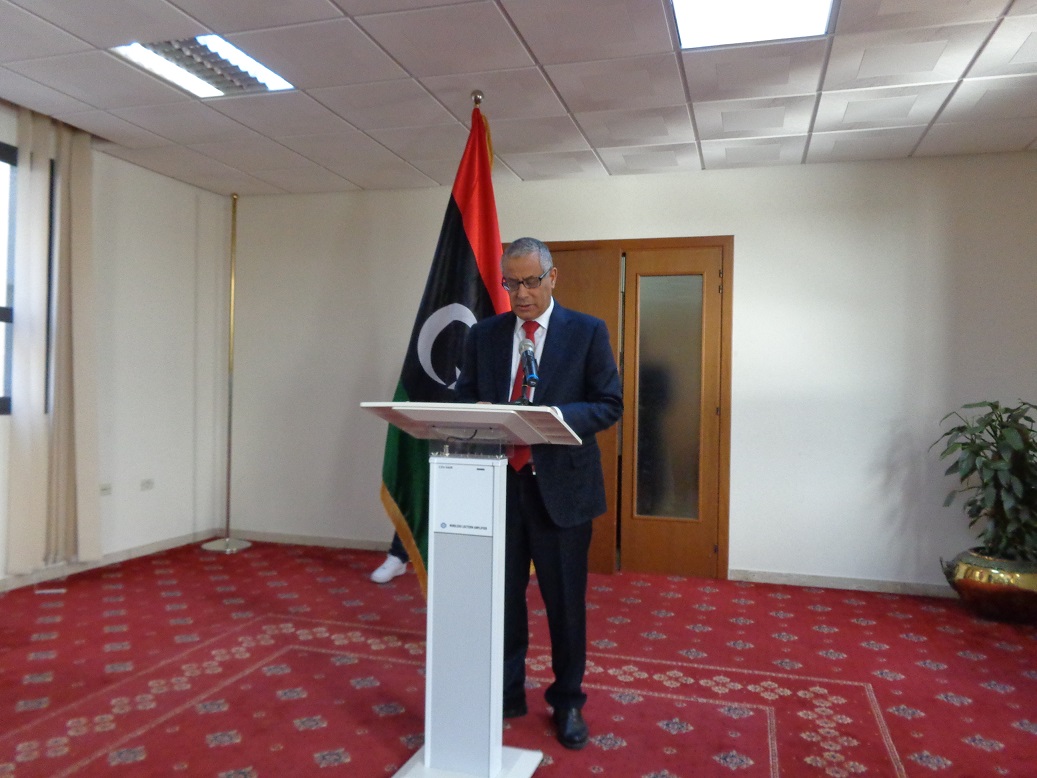By Salam Tekbali.
Tripoli, 4 February 2014:
As Libyans prepare to vote to establish a committee to draft the country’s first permanent constitution . . .[restrict]since Muammer Qaddafi came to power in 1969, one cannot help but reflect on the changed circumstances in the country.
Just 3 years ago, Qaddafi maintained his unchallenged chokehold on the country, enforcing his dictatorial concoction of socialism and deranged personal philosophies by using terror and brute force.
Today, Libya is technically a democracy with an elected parliament. Unfortunately, however, not much has changed beyond the mechanical processes of elections. This is especially true with respect to good governance and human rights.
Since the fall of Qaddafi’s regime, many aspects of everyday life seem to have worsened, particularly the lack of security and the steady flow of public services. Adding to that, government corruption, political stagnation, and inefficiency seem to have trebled.
Strikingly, government authorities are hastily pressing forward with elections to establish a constitutional drafting committee, without heed to the current state of affairs or the public’s preparedness. Despite appeals from International Organizations and Libyan Civil Society, those in charge of this process and their counterparts in the Libyan General National Congress are seemingly unconcerned with the fact that there has been no public dialogue or civic education program to prepare the populous for the most important component of nation building.
Amid the bedlam and turbulence of Libya’s transition, a small group of Civil Society Organizations is working to restore hope and provide some semblance of democratic ideals for the constitution making process.
This group of CSO’s launched a Voter Guide Initiative to provide citizens with much needed information about the constitutional process, candidates, and basic civic information. The Voter Guide has its roots in an equally ambitious Civil Society Constitutional Initiative (CSCI), a grassroots campaign that started nearly two years ago. The CSCI, which was funded by the Jolie-Pitt Foundation with the support and guidance of the United States Institute for Peace, centered around a Manifesto drafted by Libyan civil society organizations and signed by over 900+ CSOs nationwide.
This manifesto calls on the government to ensure a Transparent, Inclusive, and Participatory constitutional process and calls for an extension of the 4 month drafting process to ensure civic education and citizen engagement. Armed with the backing of CSO’s nationwide, the leaders of the initiative embarked on an effort to draft and lobby for legislation to ensure these principles. The legislation also sets out a plan to implement robust civic education and public consultation programs to empower Libyans to make an informed decisions on the constitution. Despite being backed by over half of Libya’s CSOs, lawmakers’ responses to the initiative have been lackluster.
Refusing to be discouraged by the lack of government cooperation, Libyan CSOs ventured to find another way to achieve these goals. With the help of the National Democratic Institute and Chemonics, Libya’s CSOs are trying to provide the public with much needed knowledge about the constitutional process itself and the candidates running for seats on the drafting committee.
The group created a survey which seeks to gauge candidate views on several important issues, and they plan to distribute it both online and in print form. The team has contacted all the 600+ candidates and invited them to complete the survey. Moreover, they have asked candidates to provide their background information and C.V., and to sign a pledge of Guiding Principles that strive to ensure a participatory, inclusive, and transparent constitutional process.
So far, candidate responses have been positive, but how many will actually complete the survey and sign the pledge is yet to be seen.
As it stands, elections for the Committee of 60 are slated to take place on the 17th of February. The group had hoped to collect at least 80% of candidate responses by February 2nd, the launch date for the voter guide website (ourvotersguide.ly/).
Regardless of how many candidates end up completing the survey, Libya’s CSOs, and especially the organizations on the executive board of the Voter Guide Initiative (The New Libya Foundation, H2O, and 1Libya) deserve praise for their resilience and vision.
The group will be holding a press conference for the launch of the Voter Guide website later this week.
Salam Tekbali is a Legal Fellow for the Jolie-Pitt Foundation, the sponsoring organization for the CSO manifesto, and one of the sponsors of the Voter Guide Initiative.
The views expressed by the writer do not necessarily reflect those of Libya Herald. [/restrict]





